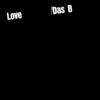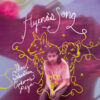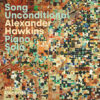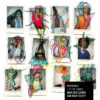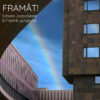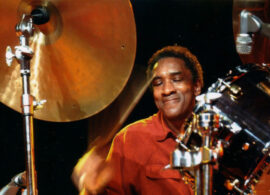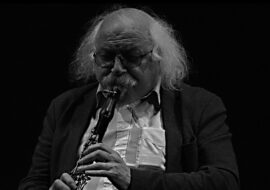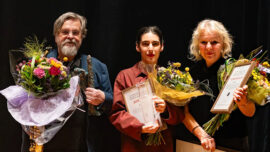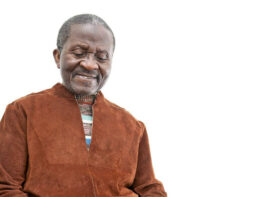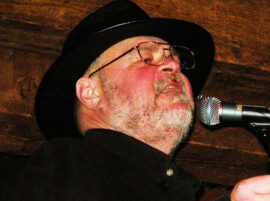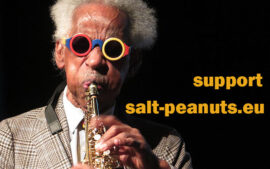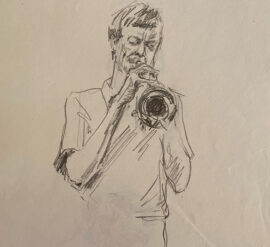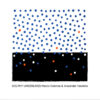
Italian reeds player Marco Colonna and British pianist Alexander Hawkins reflect on the music of the visionary Eric Allan Dolphy Jr. (1928-1964). Their «Dolphy Underlined», recorded live in Rome in February 2020, reinvents and frames Dolphy’s music with references to contemporary music of the 20th century, inspiration from Africa to Europe, and through the work of Anthony Braxton (who interpreted Dolphy’s «Miss Ann» and «Out to Lunch») and Misha Mengelberg (who played on Dolphy’s «Last Date», Fontana, 1964). But «Dolphy Underlined» is not another attempt to offer new versions of Dolphy’s compositions or hommage to the great master. Colonna and Hawkins take Dlophy’s songbook as a starting point and make it their own, in a way, distancing themselves from the historicized Afro-American lexicon of modern jazz.
Italian reeds player Roberto Ottaviano – who hosts Hawkins in his Eternal Love Band, describes Dolphy in his insightful liner notes as «one of the most unclassifiable musicians to have navigated the skies of modern jazz… his compositions cannot be pigeon-holed, with their unpredictable harmonic relations, wide compass, awkward and sudden gaps». He adds about Dolphy’s virtuous techniques: «on bass clarinet, he staked out an unprecedentedly virtuosic territory within the Afro-American improvisational practice; he liberated the flute into spaces similarly exotic to those contemporary ‘densities’ of Edgar Varese or Severino Gazzelloni; and finally, on alto sax, although it was the instrument on which he was perhaps most rooted in the (Parkerian) tradition, he transgressed the bop vernacular with his intervallic and rhythmic logic».
Colonna and Hawins open «Dolphy Underlined» with «Miss Ann», focusing on a dense and tense game of speeding up and slowing down, with Colonna on the bass clarinet and Hawkins all over the piano. This piece serves as a sobering prelude to the investigative approach of Colonna and Hawkins. «Out to Lunch», with Colonna on the sopranino sax, receives a lyrical, chamber jazz abstraction, and sounds like a piece of Nordic jazz from the ECM catalog. Ottaviano finds Messiaen-ic atmosphere in the minimalist and contemplative interpretation of «Something Sweet, Something Tender», bringing to mind Messiaen’s solo piano work «Catalogue d’Oiseaux’». Hawkins plays «Serene» as a solo piece, exploring his own rich language while moving from the Feldman-esque introduction to commenting on Dolphy’s interest in the Third Stream and concluding with a brief, playful perspective on the theme.
Colonna plays the sopranino sax on «Gazzelloni», titled after Italian famous, classically-trained flutist Severino Gazzelloni and considered Dolphy’s most advanced work on the flute. His duet with Hawkins here is cerebral and uncompromising. «Straight Up and Down» performed as an urgent, conflictual duel, before Colonna and Hawkins settle on a lyrical and poetic singing of the theme. Colonna plays «God Bless The Child» solo on the bass clarinet but his sound is much more ethereal than Dolphy’s, but takes the same liberties that Dolphy did when interpreting the seminal song of Billie Holiday and Arthur Herzog Jr. «Frame» and Colonna’s «245» are part of the encore and here Colonna and Hawkins reference the jazz legacy more clearly, first with a playful, passionate interplay on «Frame» and later with the Mengelberg-ian blues «245».
And Ottaviano summarizes it best: «Eric Dolphy could not be in better hands and heads».
Eyal Hareuveni
Marco Colonna (cl, bcl, sopraninos), Alexander Hawkins (p)

